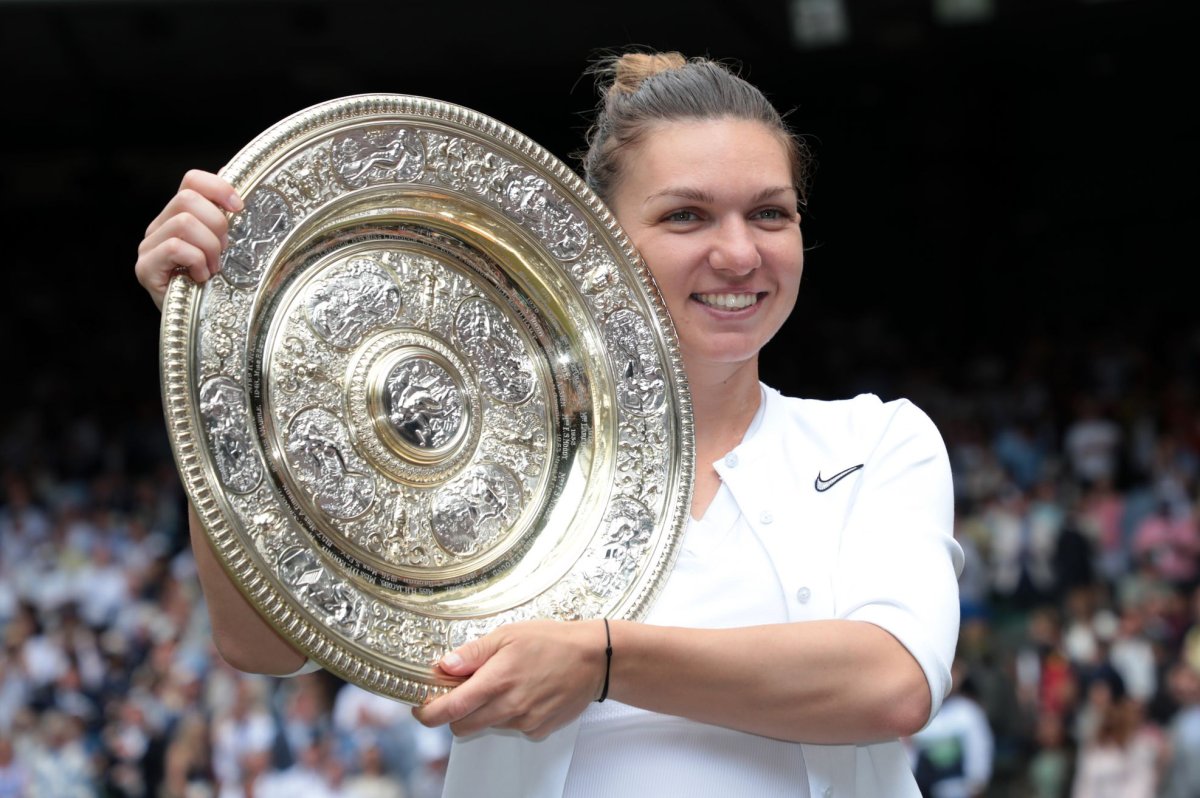On a Sunday full of high profile sporting events, this is a sermon preached at Evensong on wrestling from Wimbledon to Jacob and the struggles of our hearts.
The texts were Genesis 32:9-30; Mark 7:1-23
Simona Halep’s face beams from the front pages of the Sunday papers: she holds aloft the famous Venus Rosewater Dish; she’s fulfilled a dream her mum had when she about ten years old.
Yesterday, the 27 year old played near-flawless tennis to defeat Serena Williams. Williams, perhaps the game’s greatest player, paid tribute to her opponent’s tenacity and power saying ‘she really played out of her mind’.
This weekend is full of dreams being made, or lost.
New Zealand pile pressure on England in the Cricket World Cup; Lewis Hamilton races his way into the record book; and back at Wimbledon, Federer wrestles with Djokovic.
Paul is particularly fond of sporting imagery: athletics, running, boxing. Early today, my friend and church leader, Pete Greig, posted some tips for preachers on Facebook saying:
When Moses served in the courts of Pharaoh, he was clearly playing tennis.
When Peter stood with the eleven, raised his voice and was bowled, he was presumably playing cricket.
And there’s Formula 1 in 2 Kings 9:20 ‘The driving is like that of Jehu son of Nimshi,’ cry the spectators. He drives like a maniac.
Perhaps he takes it a little too far into dad-joke territory; but in Genesis we have an episode of wrestling and struggle which evokes the determination of today’s sportsmen and women.
This nightlong wrestling bout is a life-changing encounter: his name is changed and his future is reshaped. The physical, spiritual and psychological struggle comes as he prepares to reconcile with the brother whom he deceived.
In the poem ‘Jacob Wrestles with the Angel’ [full text], the priest Malcolm Guite writes of Jacob’s fears: he dare not face his brother; he dare not look on his act of betrayal. Having sent his family and goods ahead of him, he is left alone on the river bank; wrestling with the embodiment of human dread and divine love.
Guite voices the poem for Jacob, but it could tell of all the things we wrestle with. He writes:
But in the desert darkness one has found me,
Embracing me, He will not let me go,
Nor will I let Him go, whose arms surround me,
Until he tells me all I need to know,
And blesses me where daybreak stakes its claim,
With love that wounds and heals; and with His name.
This strange wrestling - at first fighting God; then holding God close; being embraced by God, yet also emerging from the encounter both wounded and blessed.
Jacob has seen God face to face; he has wrestled and prevailed. His new name bestows upon him a renewed call - to be reconciled; to establish a people; to be a blessing.
This wrestling isn’t over a match point or personal best: it is a wrestling that heals memories of hurt and failure; and a process of re-directing our hearts towards our first love. It is by fixing our attention on desire for God, and God’s love of us, that shapes our character, our decisions and our actions.
Mark recounts an episode of wrestling with the stuff of the heart - and our human tendency to create rules which deflect our attention quite literally from the heart of the matter.
Whether it was the traditions of washing utensils; or the mechanism of dodging the responsibilities of human kinship; Jesus challenges us to align what we say with our lips in worship and how we behave towards others.
As the words of confession in Evensong remind us, ‘we have erred, and strayed’ from the ways of our almighty and merciful father, ‘like lost sheep’. We have followed too much ‘the devices and desires of our own hearts’.
In neglecting God’s holy laws of love we have ‘left undone those things which we ought to have done; and we have done those things we ought not to have done’.
Jesus lists those things which mar God’s image in us - which harm our relationships and break our hearts: from pride to envy, wickedness to theft, fornication to slander. And yet, this is not the end of the story.
Like Jacob we wrestle with who we - and who we are called to be - in the intimate and physical proximity of God. However, we find that it is God who comes alongside us and is indeed with us.
The metaphorical dislocation of a hip joint is painful; but it might just be the nudge into awareness of our faults and the the prompt to turn our hearts from what defiles to what gives life.
At every Evensong we wrestle with what we desire and what God desires of us. And in receiving afresh the assurance of forgiveness are hearts are opened, cleansed, set free.
As the words of absolution put it: let us beseech God to ‘grant us true repentance, and his holy Spirit, that those things may please him, which we do at this present; and that the rest of our life hereafter may be pure, and holy; so that at the last we may come to his eternal joy’.
We ask this in the name of Jesus who is with us in our wrestling.
Our hearts long for something more: something beyond us; something that heals our broken hearts and which makes us open hearted to the other.
The God who forms us knows our hearts; the God who knows our hearts dwells with us in Christ; the God who dwelt with us sends the Spirit to restore our hearts that we might find peace and purpose.
As St Augustine eloquently put it in his Confessions, this is the end of our wrestling: Lord ‘Thou hast formed us for Thyself, and our hearts are restless till they find rest in Thee.'
© Julie Gittoes 2019



